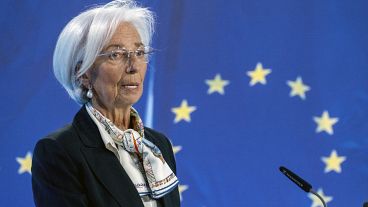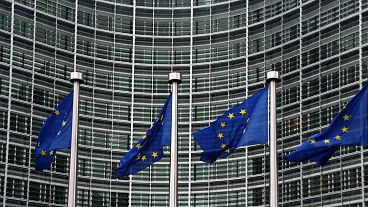Latest developments in the Middle East raise concerns about a potential broader conflict and its global economic ramifications. Key worries for Europe include whether escalating energy prices might influence the European Central Bank's (ECB) decision-making regarding a planned rate cut in June.
Less than a week after Iranian aerial attacks on Israel, the latter retaliated by striking some military targets in Iran overnight.
The attack was described as 'limited,' with no significant damage or casualties reported. However, this development surprised the markets, especially following extensive diplomatic efforts by the United States and its European allies to prevent further tensions in the Middle East.
Following the news, oil prices and gold saw an increase, whereas European stock markets dipped this Friday.
This turn of events has prompted investors to ponder if this recent flare-up between Israel and Iran might escalate into a broader Middle Eastern conflict, adversely impacting the global economic landscape.
A key concern for Europe's economic outlook is whether potential rises in oil and energy prices could discourage the European Central Bank (ECB) from reducing interest rates in the near term.
The ECB already signalled a rate cut in June
In its April meeting, the ECB indicated a possible rate cut in June. The official statement elaborated, "If our updated assessment of the inflation outlook, the dynamics of underlying inflation, and the strength of monetary policy transmission were to further increase our confidence that inflation is converging to our target in a sustained manner, then it would be appropriate to reduce the current level of monetary policy restriction.”
In essence, the ECB has hinted at a likely rate cut in June, should there be no significant shift in the inflation trajectory.
A couple of members of the ECB were already willing to cut rates in April.
The pressure from ECB ‘doves’ has risen in recent days, with Governor of the Bank of Portugal Mário Centeno stating that a first cut in June is “very likely,” and adding that “even after 25 or 50 basis points of cuts, we’ll still have a tight monetary policy stance.”
Echoing Centeno, Bank of Italy Governor Fabio Panetta said that “it is likely that in June there may be some news regarding the level of interest rates, obviously in the sense that they become less restrictive.”
In a CNBC interview on Thursday, Gediminas Šimkus, Chair of the Bank of Lithuania, opined that "only a major surprise could prevent a June cut", anticipating three reductions throughout the year.
Even the ECB's more hawkish voice, Robert Holzmann, Governor of Austria's central bank, acknowledged a probable majority support for a June rate cut, contingent on expected inflation trends and stable geopolitical conditions. However, he expressed skepticism over multiple rate cuts absent adjustments from the Federal Reserve this year.
Could rising oil prices threaten ECB’s rate-cut plans?
Remarkably, since the onset of the Iranian attacks, oil prices have seen a decline, with Brent crude dropping around $5 per barrel from a high of $92 last week to $87 currently.
Goldman Sachs analysts highlighted earlier this week that oil prices have already assimilated a geopolitical risk premium of $5-10 per barrel, anticipating potential supply disruptions.
Yet, a severe and ongoing tit-for-tat between Israel and Iran could trigger further oil price spikes, given that Iran contributes about 3.3% to global crude production with 3.4 million barrels per day.
Nevertheless, the inflationary impact of oil price hikes in Europe would largely depend not just on the initial spike, but also on the prolonged duration of elevated prices.
Answering to a specific question on oil price increase, the president of the European Central Bank, Christine Lagarde stated, “We have learned from the recent shocks that energy costs play a significant role and we are very attentive to those evolutions." She recognized the risk that inflation “will have fluctuations in the coming months," but also stressed that the ECB looks at a broader set of price dynamics within the consumer basket.
Historically, such as in November 2020, the effects of oil price spikes on the broader euro area inflation rates have taken months if not a quarter to manifest.
Therefore, unless there is a major escalation in the Middle East, the inflation narrative in Europe is unlikely to shift significantly by June, thereby supporting the likelihood of an ECB rate cut.



